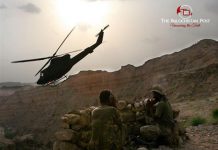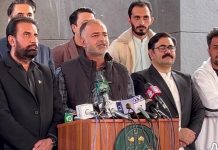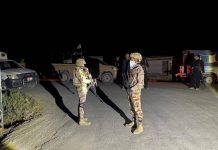According to the statistics released by Balochistan Youth Civil Society (BYCS), an organisation that monitors road accidents in Balochistan, 1099 traffic accidents have occurred in Balochistan that have resulted in 123 deaths and 1462 injuries in July.
Those killed in road accidents include 14 children and six women.
Six of the dead children were killed in a collision with a water tanker in Quetta. Due to joblessness in Balochistan, water tanker drivers are often young and inexperienced, which has resulted in numerous such incidents but authorities have failed to improve the situation.
The following city wise figures of July depict a very grim picture:
Quetta, Pasheen and Khanozai: 95 accidents that resulted in 23 deaths and 121 injuries
Mastung & Kalat: 187 accidents that resulted in 17 deaths and 273 injuries
Khuzdar and Soorab: 174 accidents that resulted in 21 deaths 216 injuries
Lasbela, Gaddani, Hub and Windir: 397 accidents resulting in 11 deaths and 483 injuries
Chaman and it’s environs: 41 accidents that resulted in 8 deaths 60 injuries
Zhob, Ziarat, Harnai, Loralai, Dukki and Sherani: 113 accidents that killed 13 and injured 148.
Noshki, Taftan, Kharan, Dalbandain, Chaghai, Besema and Washuk: 32 accidents that resulted in 9 deaths and 52 injuries.
Gwadar, Tump, Ormarha, Turbat and Pasni Awaran: 21 accidents that resulted in 13 deaths and 47 injuries.
Sibbi, Notal, Bolan, NaseerAbad, Daira Murad Jamali, DairaAllah Yar, Barikhan, Sobat Poor, Daira Bugti, Jhal Magsi and Kohlu: 39 accidents 9 deaths and 65 injuries
Road accidents are a common occurrence in Balochistan due to outdated roads. The national highways have not been upgraded for decades and the inadequate dual carriageways have also proved fatal for the increasing traffic.
Majority of highways in Balochistan are dual carriageways, which are very narrow with no divider between both lanes. Such roads are one of the major contributors of road accidents in Balochistan.
The road safety and navigation signages are non-existent. The international standards are not followed, and local standards have never been devised. According to government’s own sources, there is virtually not a single traffic engineer in Balochistan.
The annual funding of highway authorities is 30 times less than funds provided to the security forces, which are alleged to be involved in gross human rights violations in the region. Activists maintain that it is high time the funds are channelled to highway authorities from the security forces so that the roads in Balochistan are improved and innocent lives are saved.




























